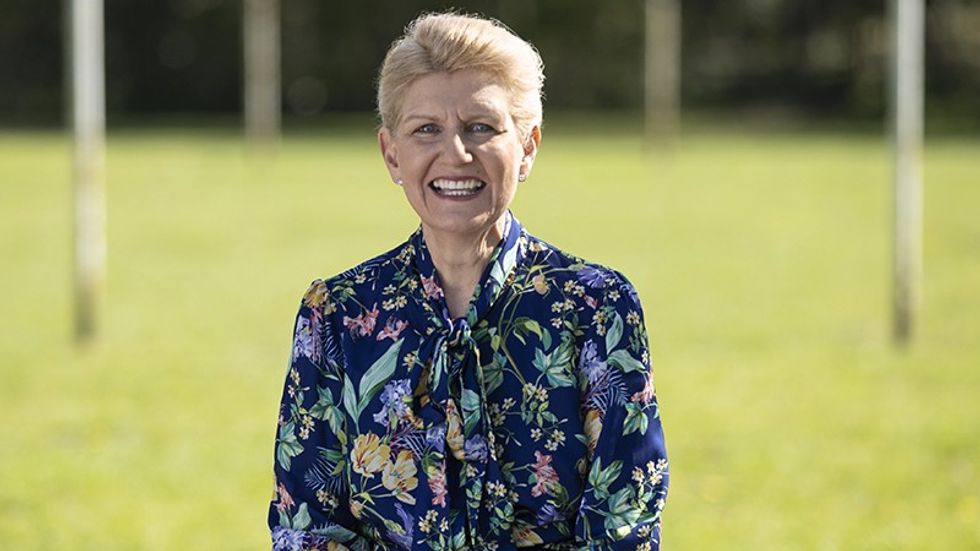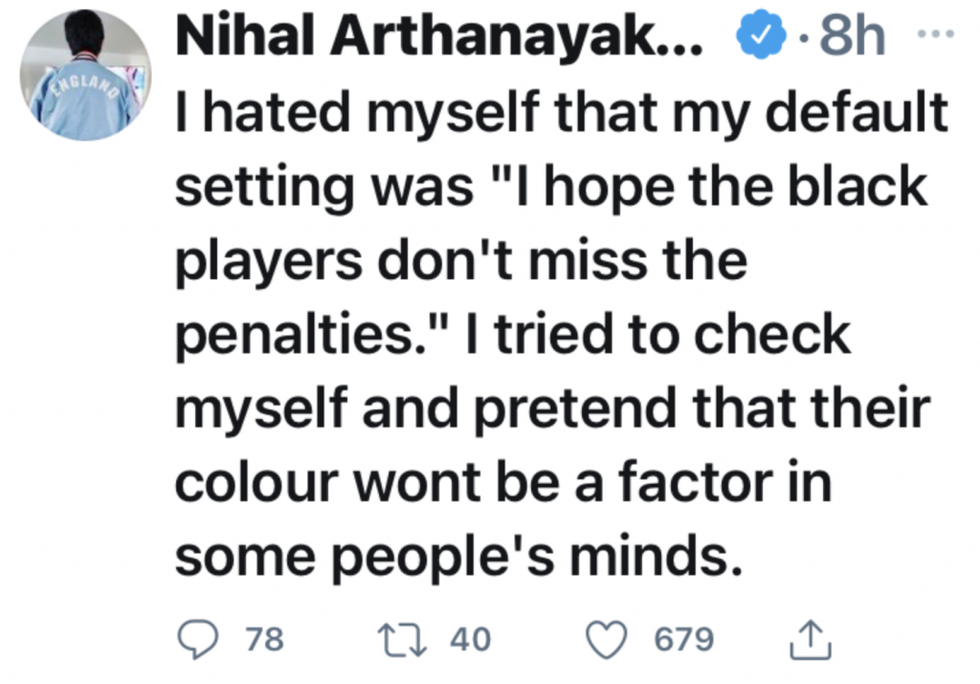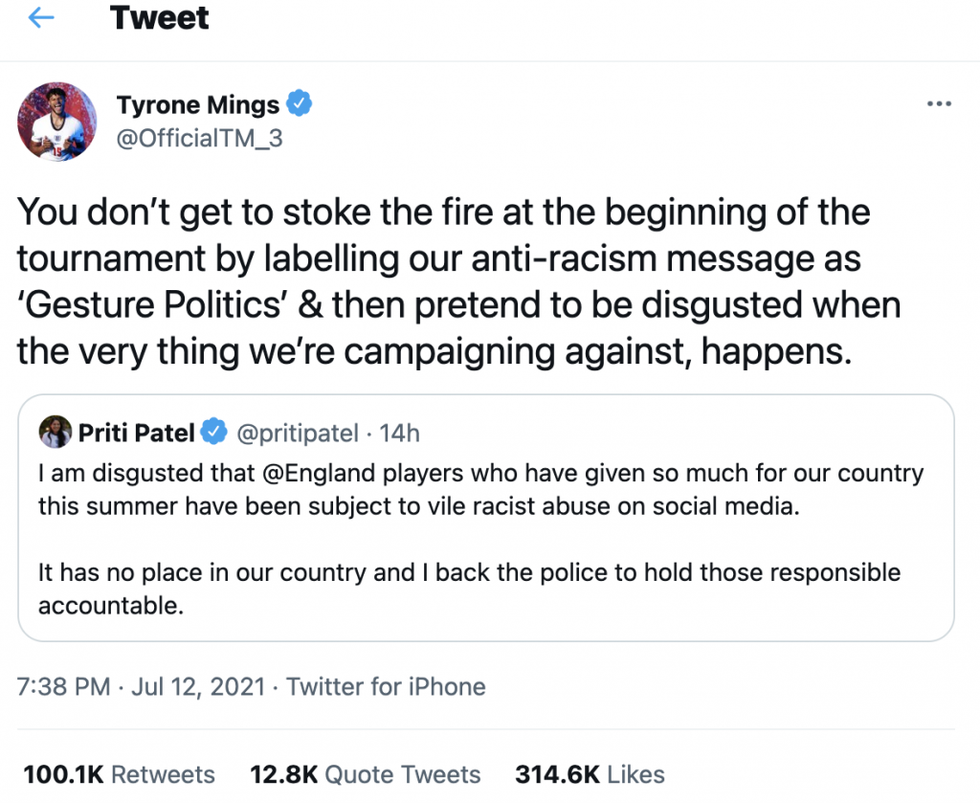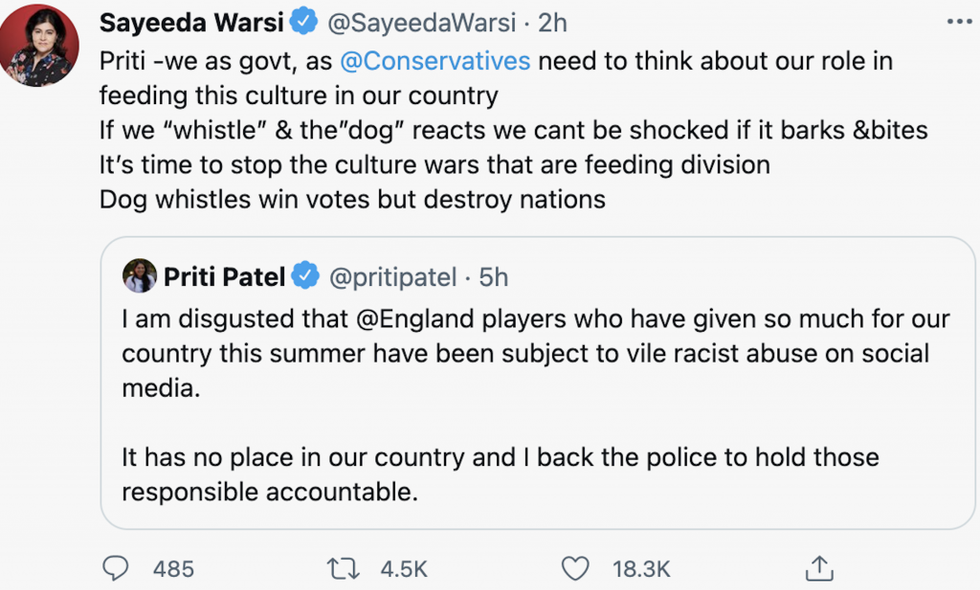“Don’t let racists spoil the success of England Lions in bringing the country together”
Anti-racism pressure groups, think-tanks and MPs are urging everyone associated with professional football to build on the achievements of England during Euro 2020, in cementing better race-relations throughout the country.
During the past four weeks the English nation got behind its football team as it made history in reaching its first finals in the competition.
Not since the 1966 World Cup, and the only English football success, has the country had so much to celebrate.
“What we have to do is to remind ourselves of how positive the previous four weeks were,” said the chair of anti-racism charity, Kick It Out, Sanjay Bhandari.
“That Gareth Southgate is an incredible leader who has led a team with a band of brothers’ spirit that has lifted the spirits of the nation as we come out of lockdown,”
“They really get the importance of everyone feeling included, and that football, being a game for all, and this country has come together.”
The director of the British Future think-tank, Sunder Katwala, said it had been “brilliant month for England, for English football, and for Englishness”.
This team, he said, did more than just talk about being representative of the nation.
“Sport can often be powerful in a show not tell way,” he told Eastern Eye. “When you had the first black players in the team, and they fought the argument, it changed the idea of who could be English. You had the image of an inclusive Englishness.
“But what's been different in 2018, and 2021, is there's been a narrative and an articulation that goes with that, that you would associate with a civic society leader or a political leader.
“And it's been a football manager, and football players who've actually spoken up for a diverse and inclusive Englishness.”
Incredible experience
Manisha Tailor is the only south Asian, man or woman, in a full-time coaching role in any of the 92 clubs in English professional football, as the newly promoted assistant coach at Queens Park Rangers.
“The Euros have been an incredible experience, and they took us on a journey which was more than just about football,” she said.
“It brought people from the community together, for the love of the game. Even those who may not have watched football before were hooked, and this has been great to see.
“I think food and music is a big part of south Asian culture, and the tournament allowed for this to be infused with sport, showing what being English and living in England mean to different people.”

In a news conference on Monday (12), Southgate praised his team and the fans who supported them.
“We have been a beacon of light in bringing people together, in people being able to relate to the national team, and the national team stands for everyone,” he told journalists.
“That togetherness has to continue, and we’ve shown the power our country has when it does come together and has that energy and positivity.”
Confident players
Katwala acknowledged that Southgate’s form of leadership gave his players confidence to speak out on things considered political in the past.
“They've led the country and provided the vision and version when everybody else has been silent on this point of what does England [and] needs to mean in the England of 2020.
“They're a very socially conscious generation. I think Raheem Sterling, Marcus Rashford, Jordan Henderson have shown that.
“It's a very young team, the average age is 25. They represent the shift in views of the 25-year-olds of England today that it's a more diverse group as a group more confident, comfortable, about diversity.
“They don't have to fight some of the battles that Cyril Regis, Luther Blissett and that first courageous generation of legends had to fight.
“They say, we will make new progress in our generation, the progress of the past is a foundation for battles to win today.”
Black and south Asian MPs have been quick to praise the England team and their head coach.
“As I posted on social media, we should be very, very proud of the achievements of Gareth Southgate and his wonderful team, they have been a class act throughout,” enthused the Labour MP for Slough, Tan Dhesi.
“Just because somebody has missed a penalty kick, or just because the team has narrowly missed out on creating history by winning the European Championship for the first time ever, it doesn't mean that those players have failed.
“They are heroes, and they should be regarded as such.”
The Labour MP for Brent Central Dawn Butler described it as a “fabulous four weeks”.
“The lads just made us so proud, and they the whole English team was phenomenal,” she said.
“They literally lifted the whole country out of depression, bought us hope at a time when we needed that more than ever.
“That hope didn't come from politics. It came from a football team, full of young lads and a great manager standing by what they believed in, social causes, justice and equality.”
Racist backlash
Hundreds of south Asians were at Wembley for the final, while tens of thousands watched it live on television, living every anxious moment.
BBC Radio Five Live’s Nihal Arthanayaka summed up many people’s thoughts with his Tweet, “I hated myself that my default setting was ‘I hope the black players don’t miss the penalties.’”
But immediately after the defeat, the three black players who missed their penalties faced racial abuse on social media.
“It's always there lurking in the background, and we always knew that if England missed out on penalties and a black player missed, it [racism] will come back online,” said Bhandari.
“But we also have to remember that online is a very different to the real world. There's clearly an element of the online abuse that is real people in this country who are Tweeting racist stuff.
“Our data from monitoring online abuse over the whole season, and previously, the vast majority of online abuse actually comes from overseas and comes from people who've never set foot inside an English football stadium.
“And you can't really call them fans, they're users of the platforms.”

Such is the difference from a generation ago that the second in line to the throne and FA president, Prince William, took to Twitter to condemn the racists.
He Tweeted that he was “sickened” by the abuse.
“It is totally unacceptable that players have to endure this abhorrent behaviour.
“It must stop now and all those involved should be held accountable.”
But only the social media companies can stop racist abuse online.
Over the past two years, sport stars, celebrities, and Prince William have periodically boycotted social media.
Boycott social media
Companies, like Twitter, have promised to clamp down on abuse, but critics say they are too slow to act, and the punishment meaningless.
Katwala suggests that if nothing changes, players should once again boycott social media on the first day of the new Premier League season next month.
“The FA should go in, studs up, and put the social media companies under pressure,” he said.
“They should use the first day of the football season in August to say to Twitter, to Facebook, whose side are you on? Are you on the side of anti-racism, or are you going to keep these pro-racism rules?
“There isn't enough punishment when there's racist abuse against players. Bans are voluntary. If you get banned from a platform you can come back on.
“If the social media companies want to be part of a healthy conversation, you've actually got to sit down with the players, listen to the players and make some changes.”

He is backed by the Labour MP for Perry Barr, Khalid Mahmood.
“All social media platforms have a responsibility, and they've got to engage forcefully with anybody who generates hate campaigns.
“You can't do it on the street, but just by putting on social media and getting away with it isn’t right.
“You shouldn’t be allowed to get away with racial abuse.”
The Labour MP for Brent Central, Dawn Butler, said social media platforms needed to be held accountable for their inaction.
“Find ways that affects their pockets, not something that they can just easily dismiss, and use racism as clickbait to enhance their money-making model.
“At the end of the day, social media platforms make money from clickbait, and we've got to, we've got to change that, and it's not just racism, it's homophobia.”
United front
The chair of Kick It Out, Sanjay Bhandari, said the approach to tackling online abuse was “fragmented”.
He urged the FA, Premier League, English Football League, and the Professional Footballers’ Association to “remain engaged” in tackling racism in the sport.
“Part of the challenge is you have to figure out who's actually got jurisdiction.
“All of those governing bodies, we want them to remain as energetic and as involved as they have been, and they're engaged with it.
“So, for the last year or so the, the public statements of support have been really good in supporting the players in what they wanted to do around making protests and we want to see that continue.
“We worked well together as a unified team, around the social media boycott.
“We need more of the teamwork across football and working together.”
Southgate condemned the racism as “unforgivable”.
Political fallout
In a briefing on Monday (12), the prime minister, Boris Johnson said, “Shame on you, and I hope you will crawl back under the rock from which you emerged."
But his comments were criticised by the former Manchester United and England right-back, Gary Neville.

He told Sky News, “He [the prime minister] said Muslim women look like letter boxes. Honestly, Gareth Southgate and Boris Johnson are poles apart.”
The home secretary, Priti Patel, also joined in the criticism of racist attacks aimed at England’s black players.
“I am disgusted that @England players who have given so much for our country this summer have been subject to vile racist abuse on social media,” she Tweeted.
“It has no place in our country and I back the police to hold those responsible accountable.”
But Aston Villa’s and England’s Tyrone Mings took to Twitter to slate Patel.
“You don’t get to stoke the fire at the beginning of the tournament by labelling our anti-racism message as ‘Gesture Politics’ & then pretend to be disgusted when the very thing we’re campaigning against, happens.
Dog whistle politics
That sense of outrage was echoed by Dhesi, who described the prime minister’s condemnation as “hypocritical” because he had not supported players who took a knee.
“Ministers need to be called out, because some of this dog whistle politics when individuals, like the prime minister, like the home secretary, had been engaged in saying that they will not condemn those who are booing the English players when they are taking the knee.
“Those guys were taking the knee in order to make a stand against racism.
“Racism should be condemned by all, instead the likes of the prime minister and some of his Conservative ministers, described that as gesture politics.
“So, is it any wonder that when dogs eventually start to bark, that we should not be surprised?”
But it is not just opposition MPs who have criticised Patel.
The former chair of her party, Lady Sayeeda Warsi, Tweeted her disgust.
“It’s time to stop the culture wars that are feeding division,” she wrote.
Manisha Tailor told Eastern Eye that she was saddened that some players had been subjected “to such hurt and vile abuse for simply representing their country”.
Yet she said the Euros had given her hope.
“My mentors had already empowered to be resilient, to have the courage to persist and to find different ways of learning.
“This in essence has helped me to problem solve, manage how I feel and find solutions.
“The atmosphere created as a result of the tournament has added to this and has left me feeling even more inspired to be part of what England means to us, an all-inclusive England and continuing this journey for change.”






















